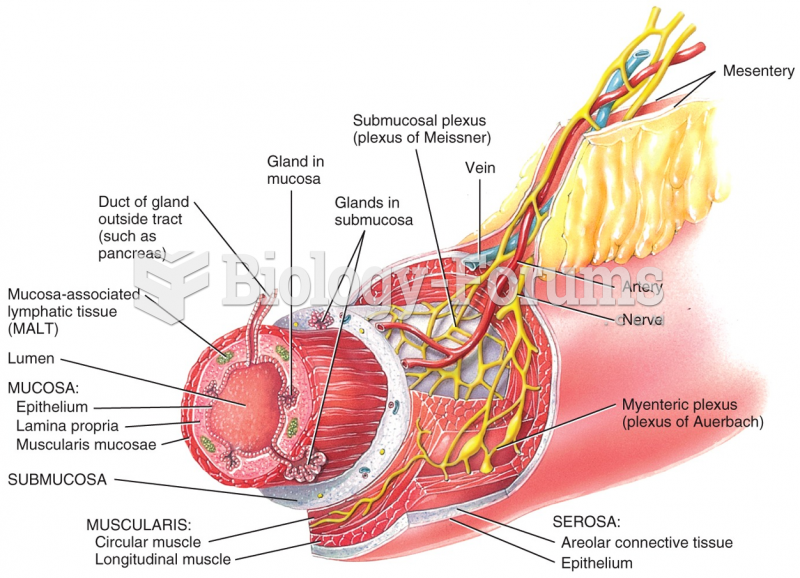|
|
|
The human body produces and destroys 15 million blood cells every second.
People with high total cholesterol have about two times the risk for heart disease as people with ideal levels.
Medication errors are three times higher among children and infants than with adults.
Historic treatments for rheumatoid arthritis have included gold salts, acupuncture, a diet consisting of apples or rhubarb, nutmeg, nettles, bee venom, bracelets made of copper, prayer, rest, tooth extractions, fasting, honey, vitamins, insulin, snow collected on Christmas, magnets, and electric convulsion therapy.
To prove that stomach ulcers were caused by bacteria and not by stress, a researcher consumed an entire laboratory beaker full of bacterial culture. After this, he did indeed develop stomach ulcers, and won the Nobel Prize for his discovery.
 Multiple-dose drug administration: drug A and drug B are administered every 12 hours; drug B reaches
Multiple-dose drug administration: drug A and drug B are administered every 12 hours; drug B reaches
 The relation between drug tolerance and withdrawal effects. The same adaptive neurophysiological ...
The relation between drug tolerance and withdrawal effects. The same adaptive neurophysiological ...





